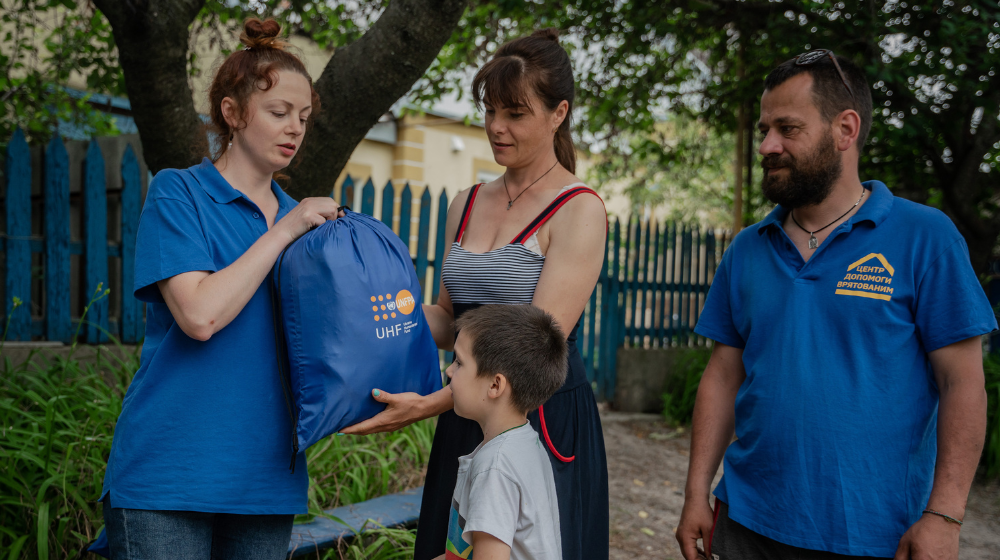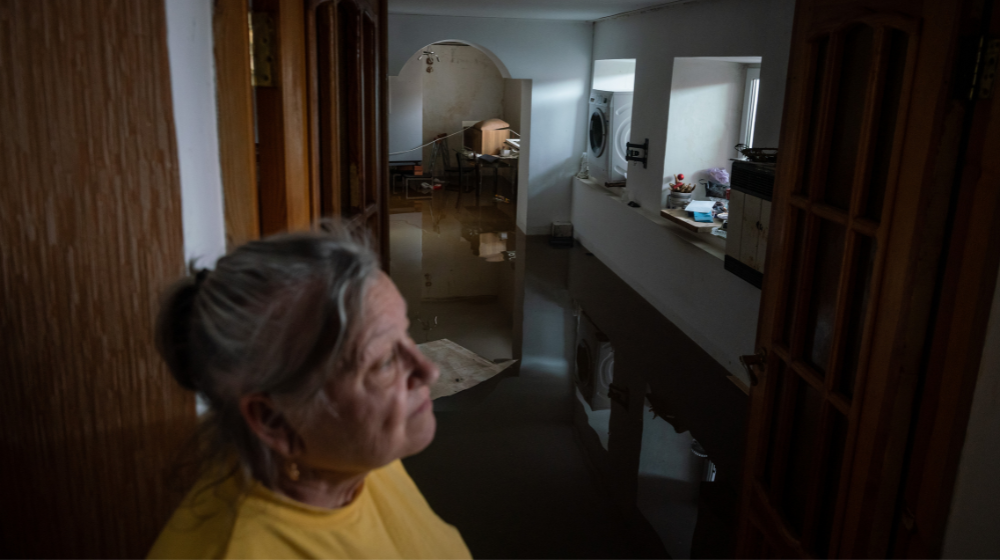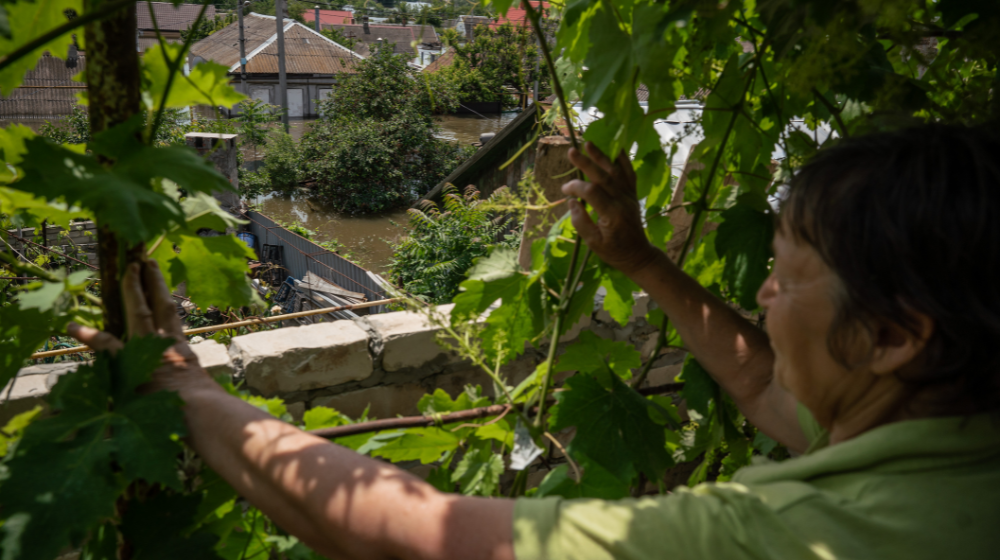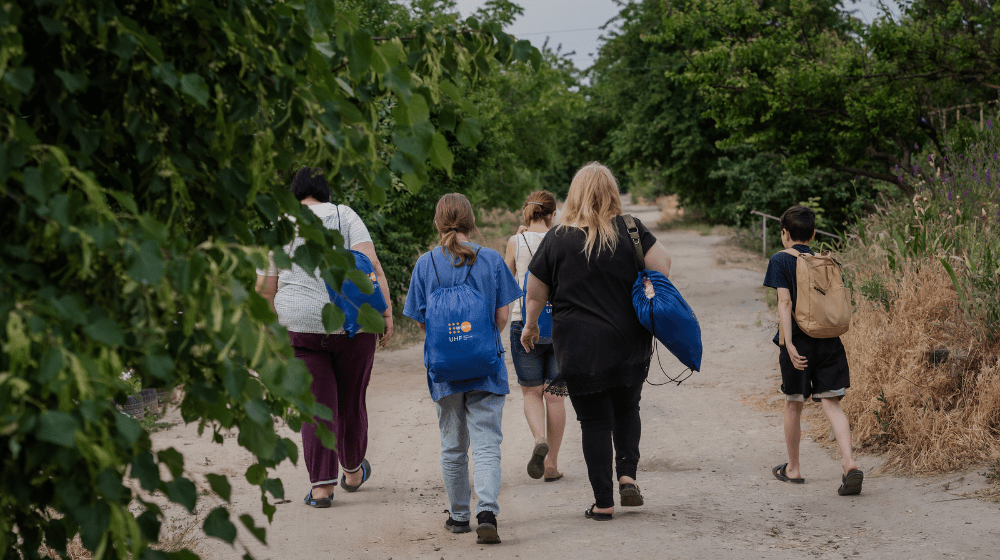In the face of the devastating flooding caused by the destruction of the Kakhovka Dam on June 6th, the United Nations Population Fund (UNFPA) has been at the forefront of providing humanitarian assistance to the affected communities in Ukraine. With a focus on addressing the urgent needs of vulnerable groups, including girls, women, and older people, UNFPA's response has been swift and comprehensive. As the floodwaters continue to wreak havoc, UNFPA remains committed to delivering vital support and aid to affected populations.
The impact of the massive flooding has surpassed initial estimates, extending beyond the Khersonska oblast and reaching communities in Mykolaivska oblast. Water levels in Kherson are now beginning to recede, but the flooding is expected to persist for at least another week. This prolonged period of inundation leaves affected people in dire need of immediate assistance, including water, food, hygiene items, and other essential supplies.

In close collaboration with other United Nations agencies, including OCHA, UNHCR, WFP, UNICEF, and IOM, UNFPA has been coordinating the provision of a comprehensive response since the first hours of this crisis, to ensure assistance reaches the evacuees promptly and effectively.
Recognizing the urgency of the situation, UNFPA joined several UN Inter-Agency (IA) convoys, deployed immediately to those in need. During the first IA convoy on June 9th, a total of 608 dignity kits were provided by UNFPA. These kits included 320 dignity kits for older women, designed to meet their specific needs; and 288 dignity kits, which offer vital sanitary supplies. Each dignity kit contains carefully selected items to address the hygiene and comfort needs of affected women. Additionally, UNFPA contributed one pallet with additional dignity kits for older women in the last IA convoy, which is currently being delivered to hard-to-reach areas in Kherson.

The ‘VILNA’ women-friendly space in Kherson, which normally provides women with assistance for accessing the labor market, entrepreneurship and for psychosocial support, has been significantly impacted by the flooding. The staff have been temporarily relocated and continue to provide vital support to evacuees both online and offline. Psychological support, including group sessions for women and families, and individual sessions for women, is being provided on an ongoing basis. The ‘VILNA’ space staff also conducts regular visits to hospitals, shelters, and schools to assess the evolving psychosocial support needs of those affected.
UNFPA's psychosocial mobile teams in Mykolaiv and Odesa remain operational and have continued providing psychological support and facilitating access to medical and legal services to evacuees.
The interventions to provide immediate response in the flood-affected areas were possible thanks to the funding from the USAID's Bureau for Humanitarian Assistance (BHA), the United Kingdom, Korea and Ukraine’s Humanitarian Fund (UHF).
UNFPA is grateful to the donors, whose contributions make these vital humanitarian interventions possible: the USAID's Bureau for Humanitarian Assistance (BHA), Sweden, Australia, Norway, the United Kingdom, France, Korea, Denmark, Spain, Finland, Belgium, the EU (DG-ECHO, DG-NEAR), CERF, Netherlands, Ireland, OCHA-Ukraine Humanitarian Fund, Japan, Canada, Iceland, Estonia, Czech Republic, the UN Partnership to Promote the Rights of Persons with Disabilities (UNPRPD) and Portugal, as well as to private sector companies and individual donors.
As the floodwaters recede, the focus must shift towards long-term recovery and rebuilding efforts. UNFPA remains committed to supporting the affected communities throughout this journey, empowering individuals to regain their lives and rebuild their resilience.
In the face of unprecedented flooding and displacement, UNFPA has been steadfast in the provision of immediate assistance and support to the affected communities. Through its collaborative efforts, UNFPA continues to prioritize the needs of vulnerable groups, working tirelessly to ensure access to life saving protection and reproductive health services for all those affected, particularly women, girls, older women and people with disabilities.



